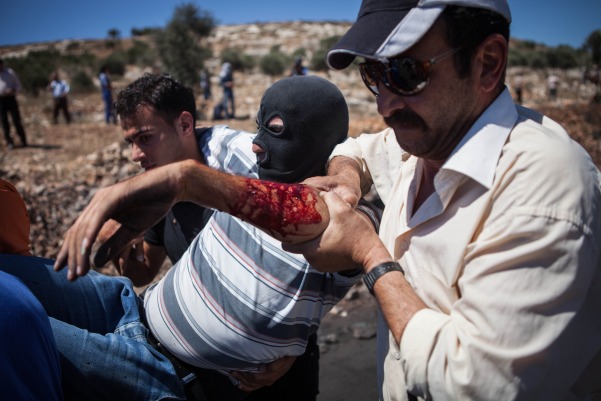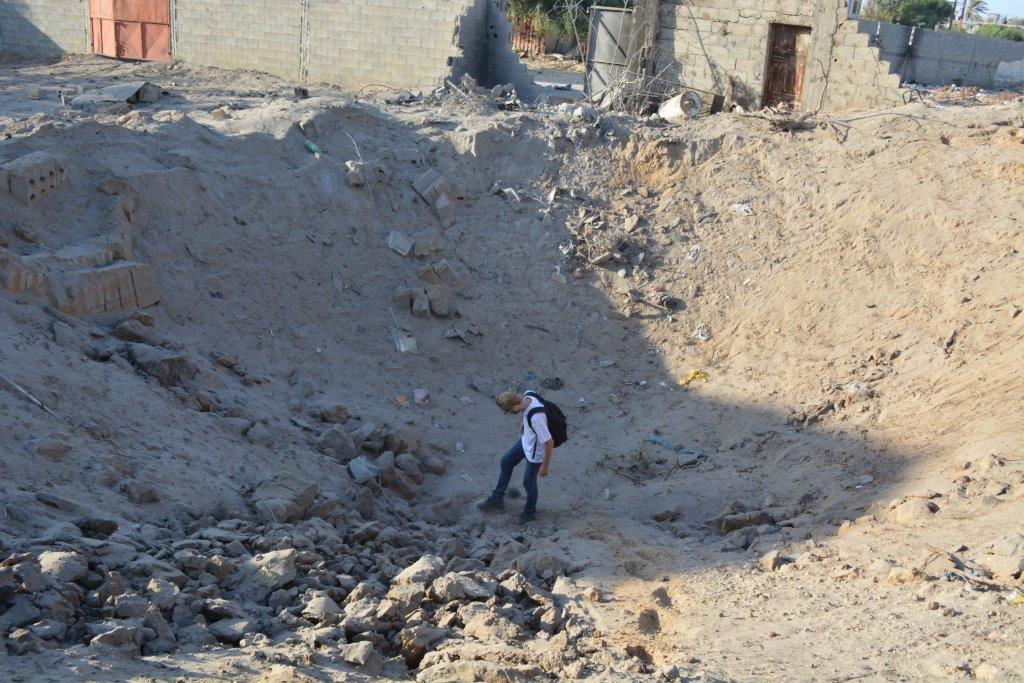Category: Reports
-
Israeli forces shoot five protesters with live ammunition at Kufr Qaddum demonstration
12th July 2014 | International Solidarity Movement, Nablus team | Kufr Qaddum, Occupied Palestine There were roughly 100 people demonstrating in Kufr Qaddum yesterday. A number of the Palestinian youths present began to throw stones, when suddenly a young Palestinian fell to the ground, clutching his leg. An entry wound and an exit wound could clearly be seen. A…
-
Report from Gaza: “This is our country, even if it’s just a country by name”
9th July 2014 | International Solidarity Movement, Charlie Andreasson | Gaza, Occupied Palestine The Israeli air forces’ strikes on Gaza over the past days have increased in intensity and are creeping ever closer to the center of Gaza City. Just after 2PM yesterday, four people were killed, according to initial data they belonged to Hamas’s…
-
Settlers attack village of Einabus
7th July 2014 | International Solidarity Movement, Nablus Team | Einabus, Occupied Palestine The village of Einabus lies approximately 10 km south of Nablus, in the northern half of the West Bank. The illegal settlement of Yizar is located just up the hill from the village. In the evening of Monday, July 6th, ten to twelve settlers descended…



